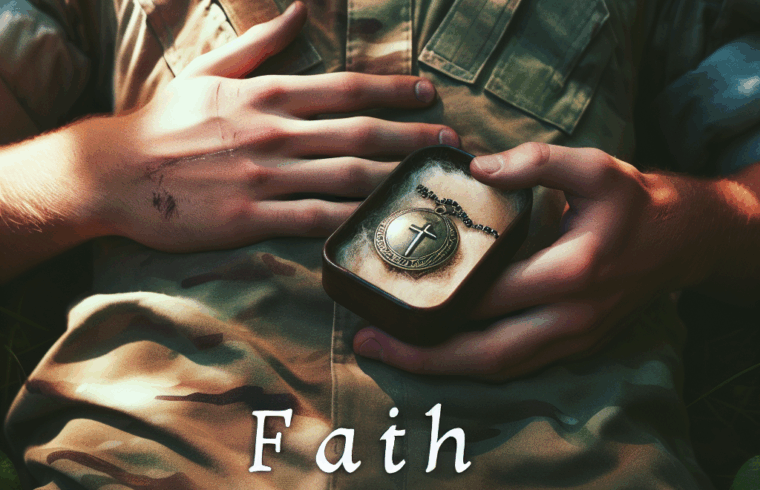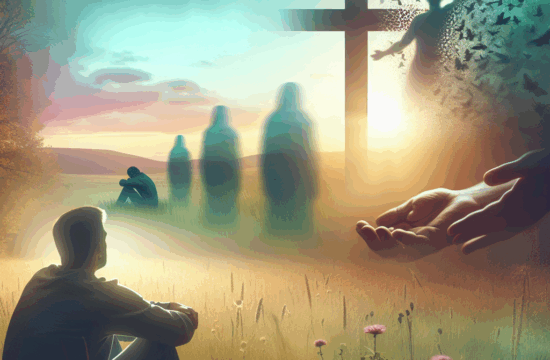==> Thank you for reading this post! Click Here If you are looking for support and Victory over PTSD.
Understanding the Invisible Wounds
What Are These Invisible Wounds?
When I first heard the term “invisible wounds,” I was puzzled. I always thought of injuries being something you could see: cuts, bruises, scars. But the truth is, many veterans come back from war with emotional and psychological wounds that don’t show up on the surface. These can be effects of PTSD, anxiety, or depression. It’s staggering how much these hidden wounds affect daily life.
I learned that these invisible wounds can manifest in various ways, such as nightmares, flashbacks, or emotional numbness. It’s a rough journey not just for the veterans but also for their families. My friend’s experience opened my eyes to this reality; he battled these unseen demons long after returning home.
Recognizing these wounds is the first step in healing. It’s crucial to understand that just because someone looks fine on the outside, they may be grappling with an internal storm. Compassion towards those who have served is key to supporting their healing journey.
The Role of Faith in Healing
Finding Strength in Belief
For many, faith acts as a refuge during tough times. When I was feeling lost, rekindling my spiritual beliefs offered a lifeline. It became a source of inner strength, helping both me and those around me confront our struggles. Having faith can remind us there’s something greater than our pain, which can be incredibly comforting.
Studies show that individuals who engage in a faith community often report feeling less isolated. Connecting with others who share similar beliefs can create a powerful support system. I’ve seen firsthand how faith-based gatherings helped veterans share their experiences and start healing together.
Moreover, faith encourages forgiveness—not just towards others but also towards ourselves. This theme of self-love and acceptance is crucial to overcoming the guilt and shame that often accompanies war experiences. Embracing faith can empower individuals to take those first steps toward healing.
The Transformative Power of Support
Building a Community
One thing I learned through this journey is the immense value of community. We are not islands; we thrive with the support of others. For veterans, being surrounded by people who understand what they’ve been through can really make a difference. I remember attending support groups where members shared their struggles and triumphs. It was both humbling and encouraging.
These communities can be faith-based, centered around shared interests, or even organized programs aimed at helping veterans. They all play a critical role in redefining identity post-war. The idea is to create a sense of belonging, a safe space where one can express themselves without fear of judgment.
Real-life connections can lead to healing by fostering openness and understanding. Sometimes just having someone who listens can alleviate a burden. I’ve witnessed friendships blossom in these settings, which is a beautiful reminder that healing doesn’t have to happen in isolation.
The Importance of Therapy
Professional Help Matters
Though faith and community are vital, let’s be real: seeking professional help is crucial too. Therapy has been a game changer for many veterans. It’s not just about talking about feelings; it’s about learning coping strategies and addressing trauma directly. I’ve seen folks walk into therapy feeling hopeless and leave with a new sense of purpose.
Get Support and Help with Recovery! Visit us for more Information and Support
Many therapists are trained specifically to handle issues related to war experiences. They can guide veterans through the complex emotions that can often feel overwhelming. Whether it’s through cognitive behavioral therapy or exposure therapy, having that expert guidance can make a big difference.
I’ve heard countless testimonials from those who’ve benefited from therapy—they felt heard, validated, and empowered to take control of their healing. By incorporating therapy alongside faith and community support, it’s possible to tackle the invisible wounds from multiple angles.
Finding Purpose After Service
Creating a New Path
After experiencing war, transitioning back to civilian life can be daunting. I’ve seen many veterans struggle to find meaning in their lives again. This is where faith can play a role in reigniting passion and purpose. By engaging in community service or pursuing new hobbies, veterans can explore what brings them joy post-war.
Many find that helping others—especially fellow veterans—can be incredibly fulfilling. I once volunteered at a local shelter and found the work to be so rewarding. By helping others, I felt a sense of connection that made my own struggles feel a bit smaller.
Bettering oneself through education or skill-building can also build a renewed sense of purpose. It’s about finding those passions that make you excited to wake up each day. The journey may be slow, but with faith, community, and the right support, it’s absolutely achievable.
Frequently Asked Questions
1. What are invisible wounds of war?
Invisible wounds refer to emotional and psychological injuries that veterans may carry with them after experiencing war. This often includes PTSD, anxiety, and depression that aren’t always visible but are deeply impactful.
2. How can faith help in healing these wounds?
Faith can provide strength, empowerment, and a sense of belonging. It fosters community connections and encourages forgiveness that helps individuals process their experiences and emotions more positively.
3. Why is community support essential in this healing process?
A supportive community helps veterans feel understood and less isolated. Sharing experiences and connecting with others who’ve had similar experiences can significantly aid in the healing journey.
4. Is therapy necessary for healing invisible wounds?
While faith and community support are vital, professional therapy offers specialized guidance and coping strategies that are crucial in addressing trauma and mental health issues related to wartime experiences.
5. How can veterans find purpose after service?
Finding purpose can involve engaging in community service, pursuing new hobbies, or continuing education. Exploring passions and helping others can reignite a sense of personal fulfillment and joy in life post-war.













